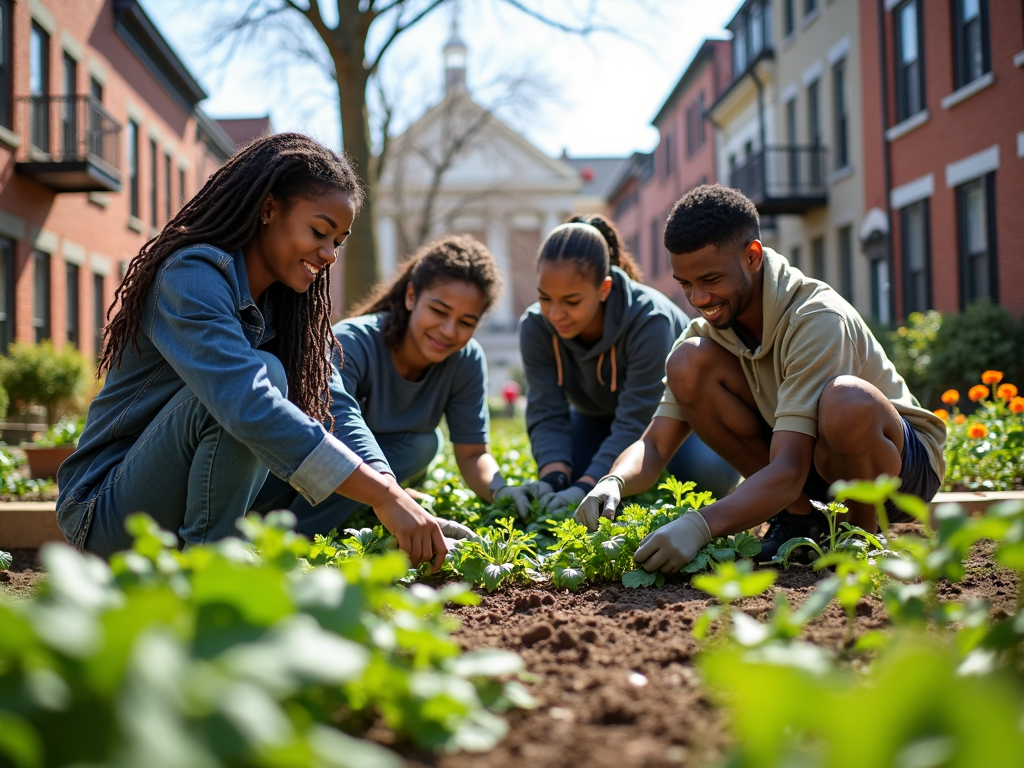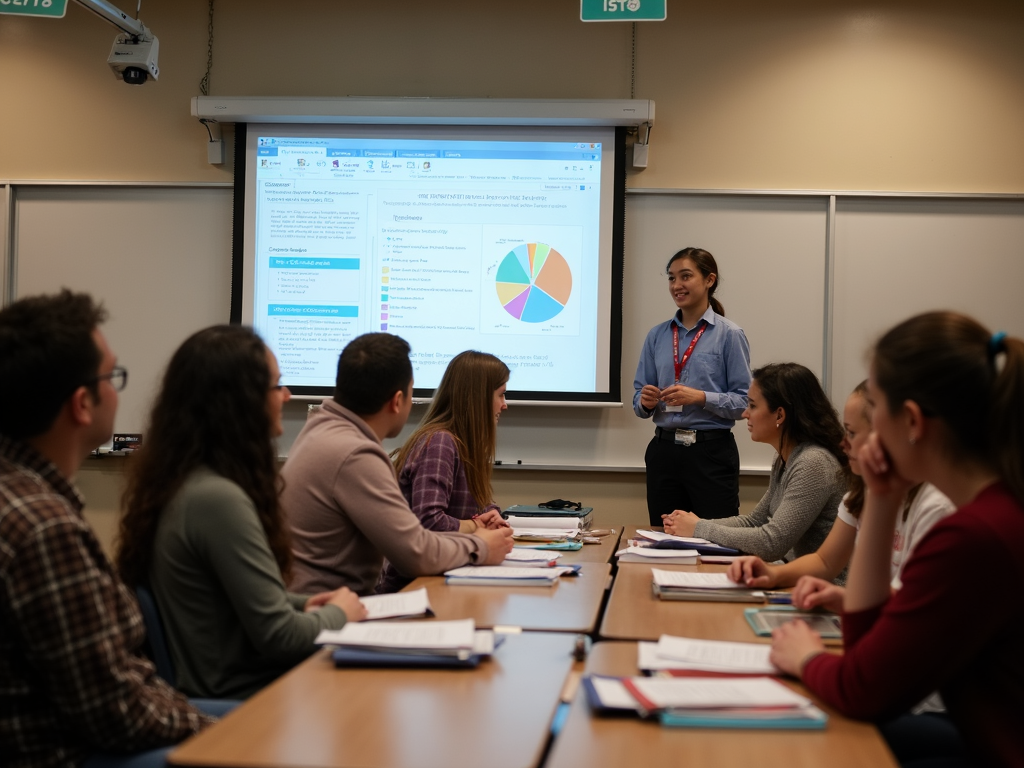Service Learning and Civic Engagement: Empowering Communities Through Action
By , June 15, 2025
Overview
Service learning and civic engagement are powerful tools that blend education with community service, creating a win-win for students and society. Service learning integrates meaningful community service with academic learning, while civic engagement encourages individuals to take an active role in improving their communities. Together, they foster a sense of responsibility, develop critical skills, and address real-world issues. This article explores the impact of these practices, sharing personal insights and highlighting their benefits for students, communities, and society at large.
What is Service Learning?
Service learning is more than just volunteering—it's an educational approach that combines academic goals with community service. Students apply classroom knowledge to real-world challenges, gaining hands-on experience while making a tangible difference. For example, a biology student might work with a local environmental group to restore a wetland, learning about ecosystems while contributing to conservation efforts. This method not only deepens understanding but also fosters empathy and civic responsibility.
According to the National Service-Learning Clearinghouse, service learning enhances academic performance, increases student engagement, and strengthens community ties. It's a holistic approach that benefits everyone involved.

The Role of Civic Engagement
Civic engagement goes beyond service learning by encompassing a broader range of activities that promote community well-being. It includes volunteering, voting, participating in town halls, and advocating for social change. Civic engagement empowers individuals to take ownership of their communities and work towards collective goals.
For instance, during my time as a volunteer at a local food bank, I saw firsthand how civic engagement can address pressing issues like food insecurity. Volunteers from all walks of life came together, not just to distribute food, but to build a support network for those in need. This experience taught me that civic engagement is about more than individual actions—it's about fostering a culture of care and collaboration.
Benefits for Students
Service learning and civic engagement offer numerous benefits for students:
- Enhanced Learning: Applying theoretical knowledge to real-world situations deepens understanding and retention.
- Skill Development: Students develop critical thinking, problem-solving, and communication skills.
- Civic Responsibility: Engaging with communities fosters a sense of duty and encourages lifelong civic participation.
- Career Readiness: Hands-on experience and networking opportunities prepare students for future careers.
A study by the Corporation for National and Community Service found that students who participate in service learning are more likely to graduate and pursue higher education.

Impact on Communities
Communities also reap significant rewards from service learning and civic engagement:
- Addressing Local Needs: Projects often focus on pressing issues like education, health, and environmental sustainability.
- Strengthening Social Bonds: Collaboration between students and community members builds trust and solidarity.
- Sustainable Solutions: Many service learning projects lead to long-term improvements, such as community gardens or literacy programs.
For example, a service learning project at Michigan State University involved students working with local farmers to develop sustainable agriculture practices. This not only helped the farmers but also educated students on food systems and sustainability.
Challenges and Solutions
While service learning and civic engagement are highly beneficial, they come with challenges:
- Time Constraints: Balancing academic responsibilities with service commitments can be difficult.
- Resource Limitations: Some projects require funding or materials that may not be readily available.
- Community Buy-In: Gaining trust and cooperation from community members can take time.
To overcome these challenges, it's essential to:
- Plan Ahead: Develop a clear project timeline and set realistic goals.
- Seek Partnerships: Collaborate with local organizations to share resources and expertise.
- Communicate Effectively: Keep all stakeholders informed and involved throughout the process.

Personal Insights: A Journey of Growth
My involvement in service learning began during my sophomore year when I joined a project to tutor underprivileged children. Initially, I saw it as a way to fulfill a course requirement, but it quickly became much more. Working with the kids, I witnessed their struggles and triumphs, which deepened my appreciation for education and equity.
One memorable moment was when a student I tutored, who had been struggling with math, finally grasped a difficult concept. The joy on his face was priceless, and it made me realize the profound impact that service learning can have—not just on the community, but on the individual as well. This experience taught me that service learning is as much about personal growth as it is about community service.
The Broader Impact on Society
Service learning and civic engagement contribute to a more active and informed citizenry. By encouraging individuals to take part in community life, these practices promote social cohesion and democratic values. They also help address systemic issues by empowering people to work together for change.
According to a report by the National Conference on Citizenship, communities with high levels of civic engagement tend to have lower crime rates, better health outcomes, and stronger economies. This underscores the importance of fostering a culture of service and engagement at all levels of society.

Getting Started with Service Learning and Civic Engagement
If you're interested in getting involved, here are some steps to begin:
1. Identify Your Interests: Think about the issues you're passionate about, whether it's education, environment, or social justice.
2. Research Opportunities: Look for service learning programs at your school or volunteer opportunities in your community.
3. Start Small: Begin with a manageable project to gain experience and confidence.
4. Reflect and Learn: After each experience, take time to reflect on what you learned and how you can improve future efforts.
Remember, every small action contributes to a larger impact. Whether you're a student, educator, or community member, there's a role for you in service learning and civic engagement.
Summary
Service learning and civic engagement are transformative practices that benefit students, communities, and society. By combining education with community service, they create opportunities for personal growth, skill development, and meaningful change. Whether you're looking to enhance your learning, give back to your community, or contribute to a better world, getting involved in these activities is a powerful way to make a difference.
For further reading, explore the recommended resources below to deepen your understanding and discover more ways to get involved.